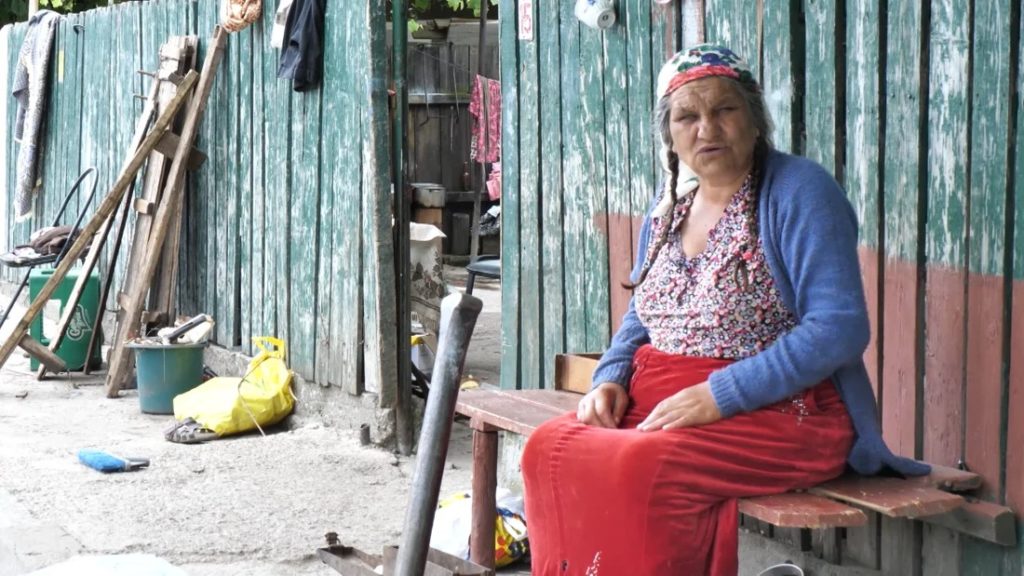NEAMT – ROMANIA, According to the last census, carried in 2011, 6,700 persons living in Neamt district in Romania identified themselves as Gypsy. In spite of that, the data collected by the District Bureau for Gypsy Population shows this minority comprises 17,000 persons. The issues present in Neamt district are the same problems found in other districts: school dropout, substandard living conditions, violence and difficulties integrating into society.
Gheorghe Stanescu:
“People didn’t dare entering here. If they did, they would’ve gotten out naked. We used to be very violent. When we would enter into a tavern, we would be “the bosses”. We are 9 brothers. Nobody scared us.”
Liviu Axinte:
“I remember that, 15-20 years ago, when I first visited their neighborhood, I entered the house of someone and, after a while, I remembered about my car. I asked if there could’ve been any problems with it. They started laughing and said my question came a bit too late, but everything was OK. They said that back in the day, when people used to steal, I would’ve been left without wheels, as they were made of aluminum.”
The Roma neighborhood in Piatra Neamt is home to almost 1000 people. When the church decided to get involved in the lives of Gypsies, they started noticing the existing needs.
Liviu Axinte:
“The first problem that brought their devastation is alcohol. Then there were addictions and a social issue – the lack of school, of education.”
Cornel Pascaru:
“I started ministering to the Gypsies together with my wife and other young people in the church. I remember visiting them for over a year.”
The social activity started with children who were in danger of ending up living on the streets.
Liviu Axinte:
“We entered into a partnership together with a school in the area were most of the Gypsies are living. We developed social surveys, saw how things were and then opened a soup kitchen which grew bigger afterwards. We didn’t spend time thinking about projects, we just began following the Word of God, which says “Religion that God our Father accepts as pure and faultless” is, on the one hand, to keep ourselves unstained, but the verse also says we should “look after orphans and widows in their distress”..”
Marcela Stanciu:
“I always understood they are in need of a chance. I worked with them for a year. I taught some courses. Besides teaching and talking about God, I had to talk to them about hygiene, about how should one behave in society and how they should treat one another.”
Dragos Stanescu:
“Children grow according to the education received from their parents. In the past, when our parents went to the pub, we would’ve followed them. Now, if I go to church, they come too.”
After the Gospel reached Gypsies in Piatra Neamt, the community started to change. People managed to integrate and stopped creating problems.
Gheorghe Stanescu:
“When God revealed Himself to me and I went to church for the first time, I said to myself I belonged there. I met Christ in church. I started crying, and when brother Nelu Racea was preaching, I said: “God, how does this man know my fate, my life? How can he know it all?”
Cornel Pascaru:
“God worked in a wonderful way among them. Some of the most aggressive repented. When the Gospel entered their hearts, even the authorities saw their transformation.”
Liviu Axinte:
“Local authorities were astonished when, during a social activity performed together with Gypsies who volunteered, we collected 40 tons of waste from all over the city. Bear in mind I am talking about volunteering!”
People engaging in marginalized communities should also seek changing obsolete mentalities.
Liviu Axinte:
“The hardest part was finding people ready to minister to them with love.”
Cornel Pascaru:
“After working and spending time with them, I realized God loved them and He has a special plan for them. From that moment on, after we began working with them, God gave me the courage and strength to support them, to spend time with Gypsies and to love them.”
As a result of the Gospel penetrating the lives of Gypsies living in Piatra Neamt city, the change wasn’t restricted to education and social life. Elements of their ancient tradition, pertaining to behavior, marriage or attitude towards work were also reformed.
To read more news on World Missions on Missions Box, go here.
Sources:
- Global News Alliance, God Transforms the Lives of Romanian Gypsies
- Alfa Omega TV, Official Website
